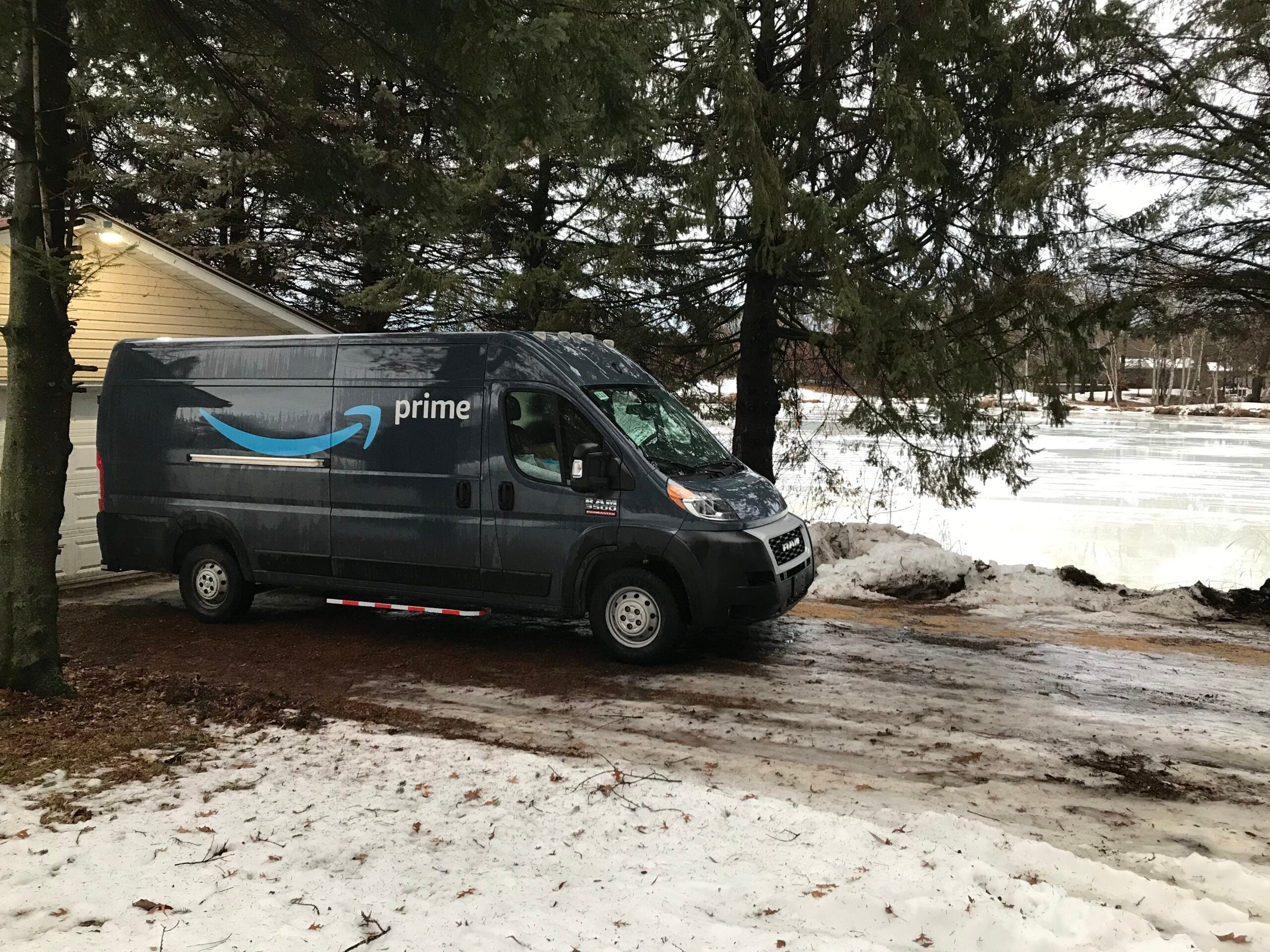The Wisconsin Supreme Court will not overturn a lower court order declaring Amazon delivery drivers are employees rather than contractors, meaning the company could be on the hook for more than $200,000 in delinquent unemployment taxes.
The dispute between Amazon Logistics, Inc. — a subsidiary of Amazon — and multiple state agencies stems from a 2018 audit by the Department of Workforce Development. The audit looked at workplace practices of more than 1,000 people working for the company, which operates under a model similar to companies like Uber and Doordash.
In a unanimous decision, the Supreme Court dismissed the case, saying its review was “improvidently granted” by justices, despite oral arguments being held in December 2023. That means the court has found it shouldn’t have accepted the appeal in the first place. The majority opinion didn’t offer any reasoning behind its decision.
In concurring opinions, liberal Justice Ann Walsh Bradley and conservative Justice Rebecca Bradley argued about whether the court should provide its rationale for the dismissal.
News with a little more humanity
WPR’s “Wisconsin Today” newsletter keeps you connected to the state you love without feeling overwhelmed. No paywall. No agenda. No corporate filter.
Walsh Bradley said an explanation is “the least we can do when the litigants have expended substantial effort and resources arguing the case before us.” She said the “dearth of explanation has been the court’s pattern for the past seven years.”
After reviewing a 2023 state appeals court ruling along with briefs and oral arguments from the company and state attorneys, Walsh Bradley said she agrees justices “improvidently granted” the Supreme Court review “because the issues for which we took this fact-dependent case will not lead to any further development of the law.”
“Thus, further review by this court and publication of an opinion would not serve any meaningful purpose,” Walsh Bradley said.
Justice Rebecca Bradley said it’s customary for the Supreme Court not to offer explanations when justices find their review of such a case was “improvidently granted.” She said Justice Walsh Bradley’s explanation “does not, however restore the hours worked or the money spent on this case by the parties.”
“A shallow explanation of the court’s reason for dismissing a case as improvidently granted amounts to nothing more than a hollow victory for one party and provides nothing for future litigants,” Bradley said.
A statement from the Department of Workforce Development said without a ruling from the Supreme Court, the appeals court ruling identifying workers for Amazon Logistics as employees “remains in effect.”
In a subsequent statement, Amazon said company leaders are “disappointed that the Wisconsin Supreme Court declined to weigh in and provide much needed guidance on these matters and are determining our next steps.”
Case centered on whether ‘gig workers’ should be considered ’employees‘
The underlying question in the case was how the term “employee” is defined when it comes to what are known as “gig workers” for the purposes of Wisconsin’s unemployment insurance tax payments by companies.
After the DWD found Amazon Logistics owed the backpay during its 2018 audit, the agency’s decision was upheld by an administrative law judge and Wisconsin’s Labor Industry Review Commission, or LIRC.
In 2022, Amazon Logistics took its challenge to court. In 2021, Waukesha County Circuit Court Judge Michael Boren ruled the company was able to prove its workers were not “employees” under state law.
In order to do so, companies must satisfy at least six of nine criteria employers can cite to demonstrate workers are independent contractors under state law. Under one of those criteria, a company must show that an individual “operates under multiple contracts with one or more employing units to perform specific services.”
Boren’s ruling found that Amazon Logistics satisfied all nine criteria under state law, but a state appeals court reversed Boren’s findings and stated the company fell short, only satisfying five of the nine requirements.
Throughout the case, Amazon Logistics argued delivery drivers who contracted with the company through its “Amazon Flex” app were “gig workers” because they had the freedom to select blocks of time in which to deliver packages.
The DWD countered by arguing that drivers “cannot negotiate the length of a block, the service fee to be paid for a block, or the geographical area covered by a block.” The agency cited testimony from an Amazon Logistics driver who stated he had not performed delivery services for any other company, “and was dependent on the income” from Amazon.
Wisconsin Public Radio, © Copyright 2026, Board of Regents of the University of Wisconsin System and Wisconsin Educational Communications Board.






